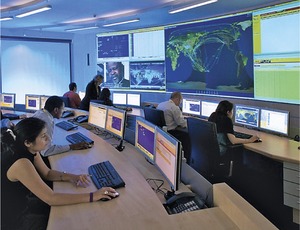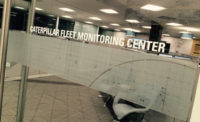
Brazilian crane and rigging contractor Makro Engenharia is one of many firms in construction using telematics to improve its productivity, but the company also is using the big data to boost the safety of its workforce and project operations with surprising results.
As the company began implementing telematics more than two years ago, it found that thousands of safety violations were occurring per month on its projects. Today, that number is down to five or less. "We have had years without a serious accident," says Fabio Escaleira, project manager in charge of performance improvement for Makro.
Makro accomplishes this by integrating real-time data from the multiple machinery brands in its fleet into custom-made enterprise software called Supervisor. It also installs on each machine a common telematics device from a supplier called Autotrac, a Brazil-based tech company headed by former Formula One racing driver Nelson Piquet.
The device can track data such as travel speed and wind speed, giving Makro deep insight into machine operations without having to log into multiple brand-specific portals. "We can't live on 10 different platforms," explains David Rodrigues, CEO of Makro. About 80% to 90% of Makro's fleet—including cranes, trucks and other vehicles—is now equipped with telematics capability. The company's goal is to have 100% of its machines reporting in wirelessly.
Machines feed data back to a control center, called CCO, at Makro's headquarters in Fortaleza, where a staff of about 10 people monitor projects 24 hours a day, seven days a week. "CCO is looking at all Makro equipment," Escaleira says. "From north to south Brazil, no matter where our equipment is, CCO can look at it."
Because rigging is a risky business, Makro had strict safety policies before implementing telematics. Monitoring operations for safety violations was difficult, though, without this technology.
Today, the company carefully watches crane operators for safety hazards. If they are found to be breaking a rule, offenders are pulled off the job and sent to training. Upon returning to work, they are not eligible for promotion until they demonstrate a history of safe work. Repeat offenders can be fired on the spot. It may sound extreme, but Makro's employees have embraced the program.
"At first, operators felt a loss of freedom but eventually realized it was for their safety," Escaleira says. "Today, CCO is very popular within the company."













Post a comment to this article
Report Abusive Comment